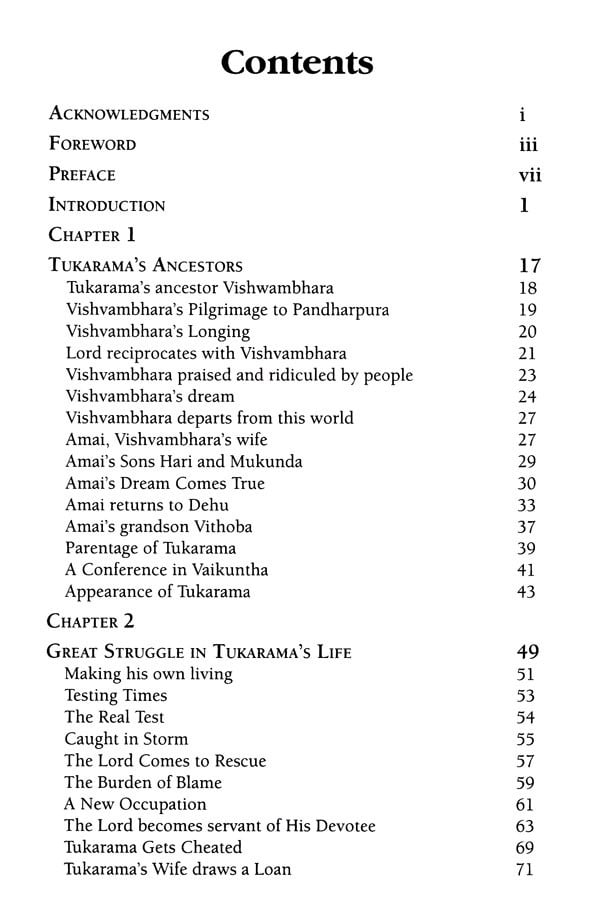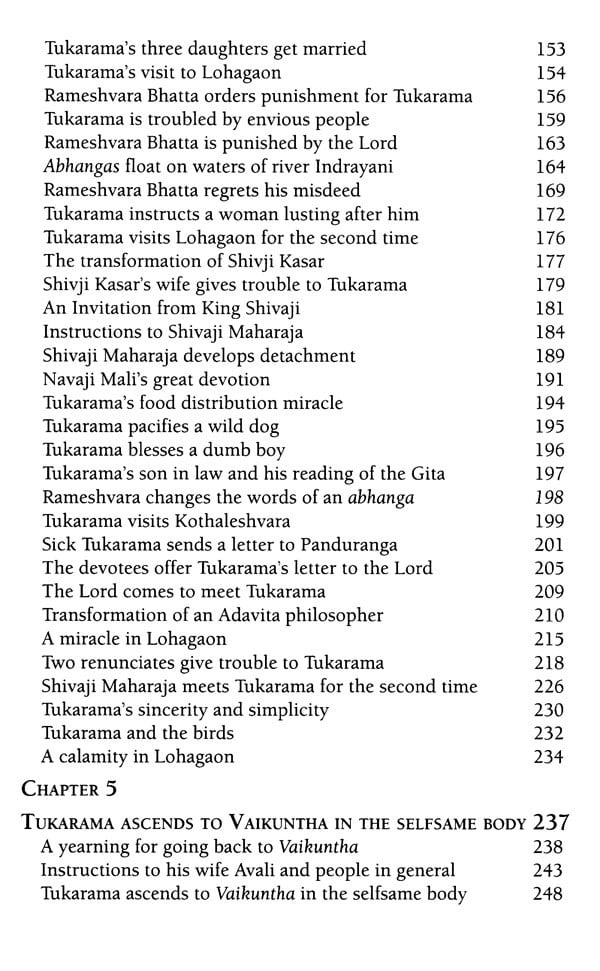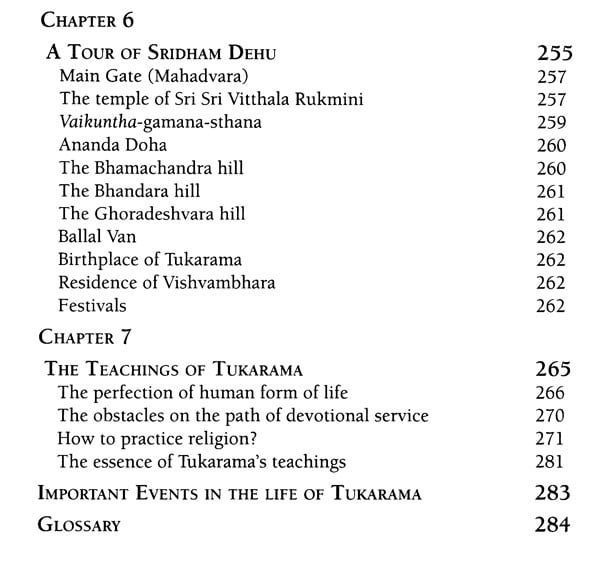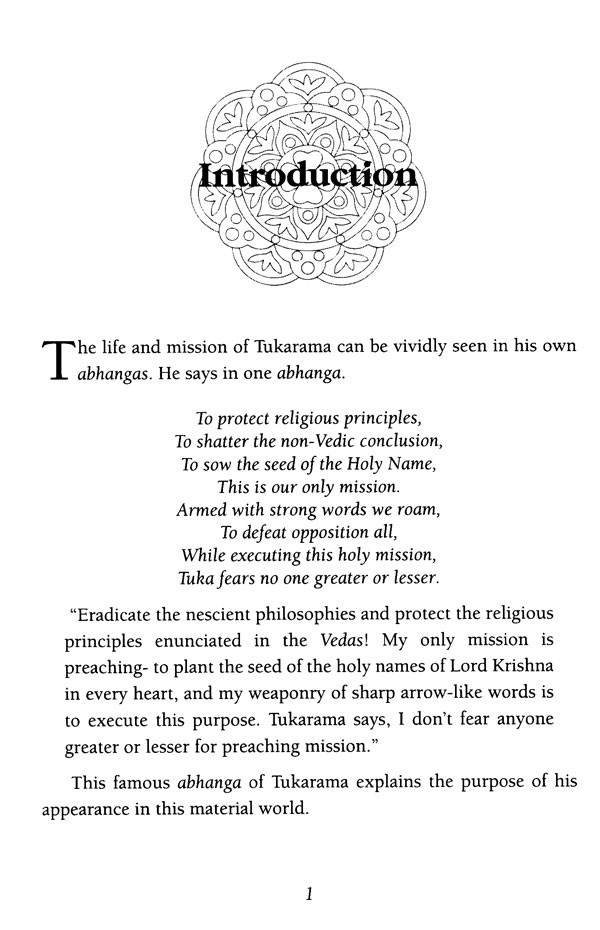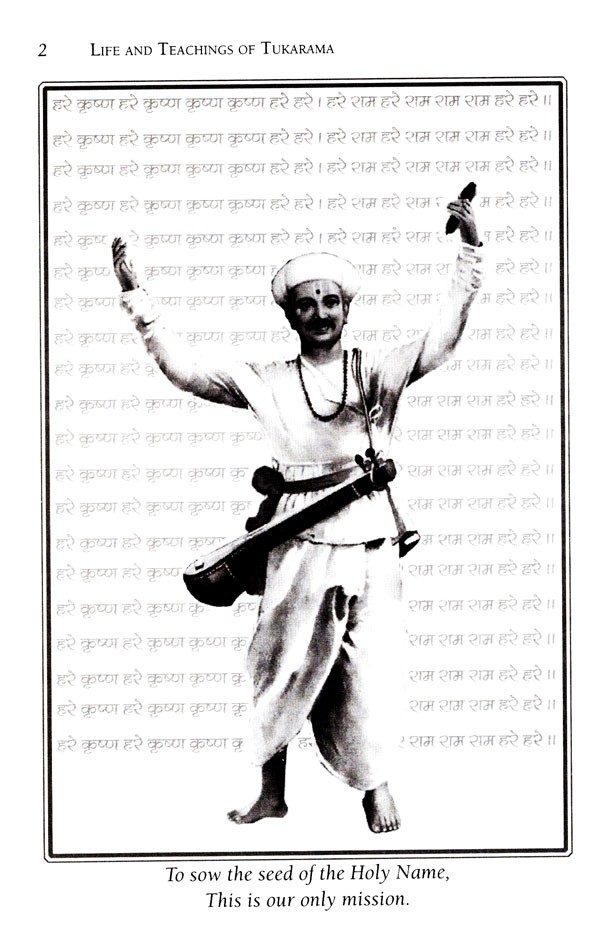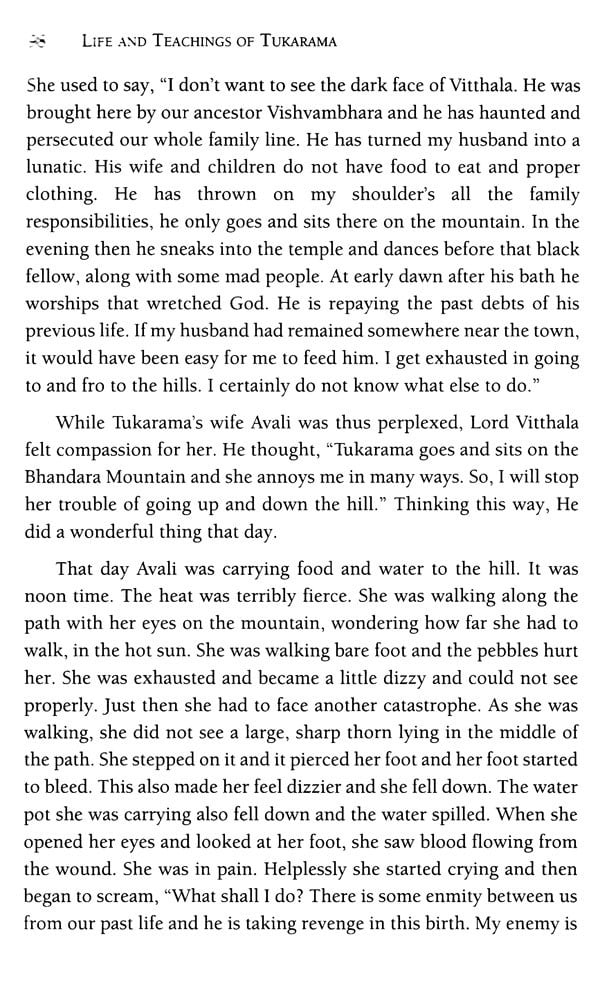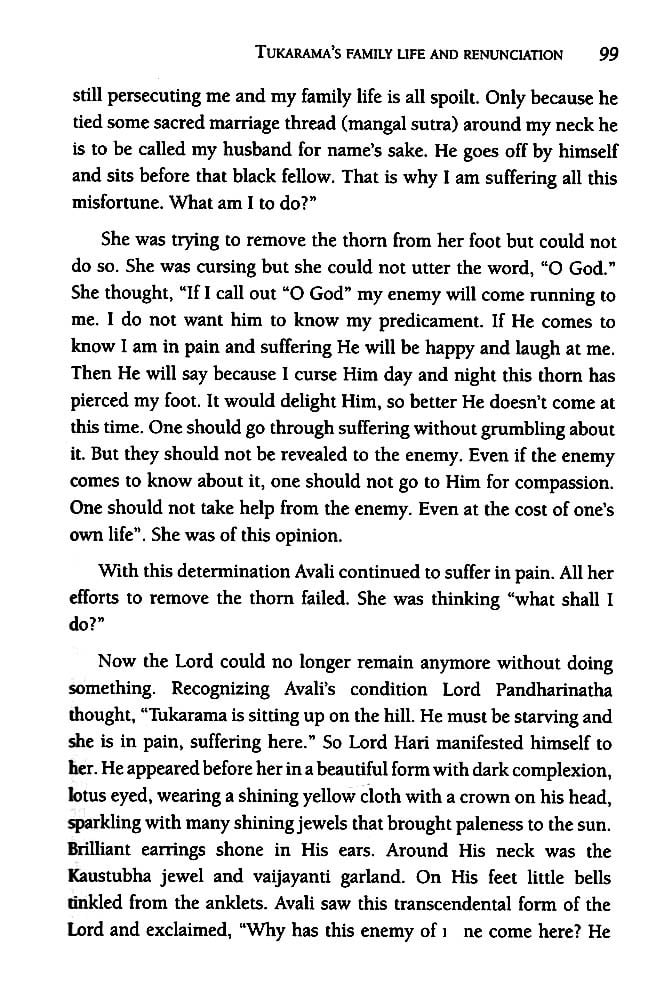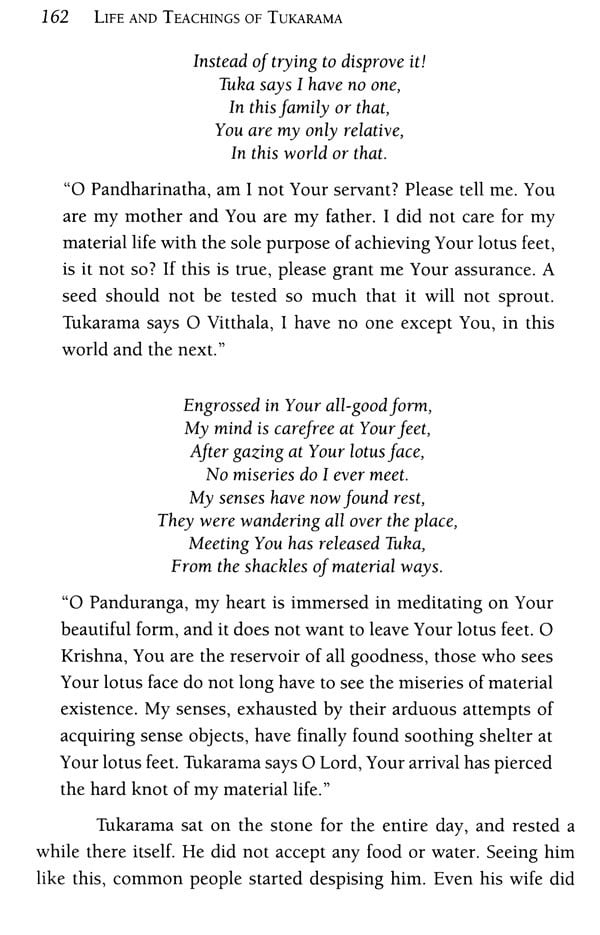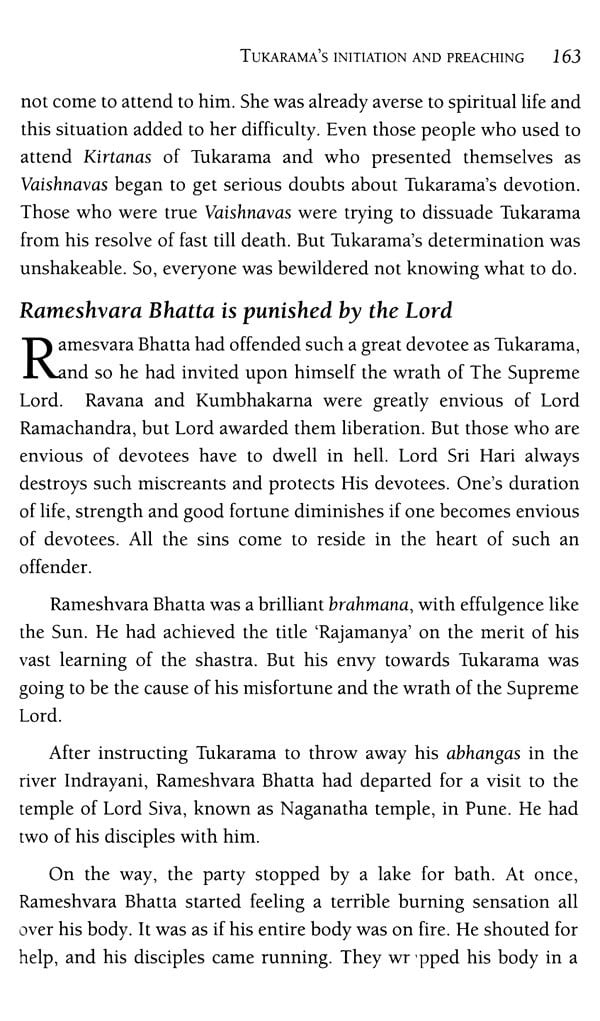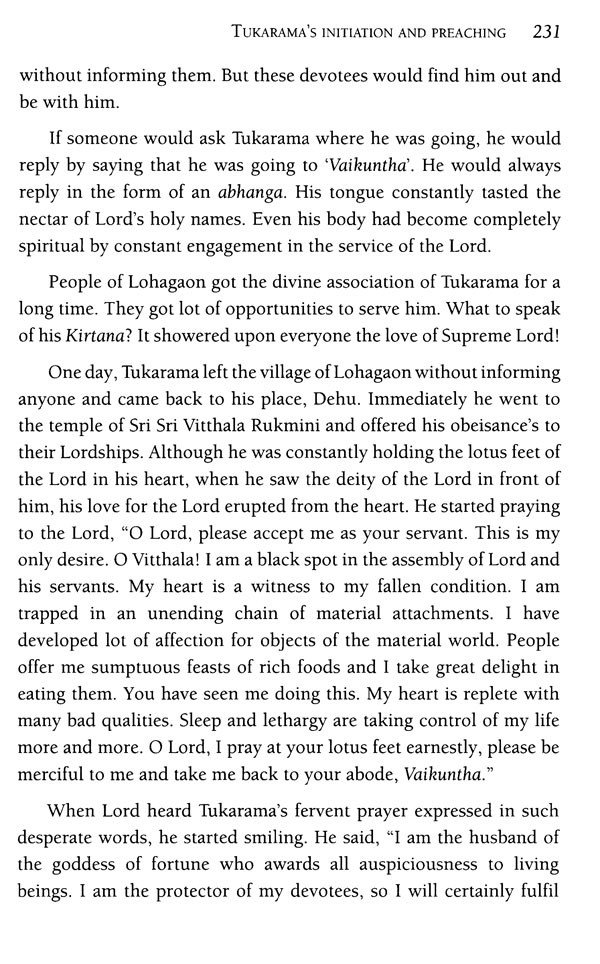
Life and Teachings of Tukarama
Book Specification
| Item Code: | AZD111 |
| Author: | Vrindavan Das |
| Publisher: | Voice Publication |
| Language: | English |
| Edition: | 2014 |
| Pages: | 312 (Throughout Color Illustrations) |
| Cover: | PAPERBACK |
| Other Details | 8.50 x 5.5 inches |
| Weight | 360 gm |
Book Description
To protect religious principles, To shatter the non-Vedic conclusion, To sow the seed of the Holy Name, This is our only mission. Armed with strong words we roam, To defeat opposition all, While executing this holy mission, Tuka fears no one the greatest or lesser.
- Saint Tukarama
Tukaram pioneered the sankirtan movement in Maharashtra, constantly chanting the Holy Names to the accompaniment of his veena and hand cymbals. His dealings with his worshipable Lord Vitthala were extremely intimate and loving, and consequently, he was a staunch opponent of the Mayavada school.
Several parallels may be drawn between his life and the lives of many of our Gaudiya Vaisnava acaryas, notably Srila Haridas Thakur. Being completely immersed in the chanting of the Holy Names, he was the very embodiment of “trinad api sunichena, taror api sahishnuna, amanina manadena, kirtaniyah sada harih”, and displayed extraordinary humility when confronted with the taunts and insults heaped upon him by the smarta (caste) brahmanas.
- His Holiness Lokanath Swami
The biography of Saint Tukarama should be written by a devotee of similarly exalted spiritual status. As such, I am obviously disqualified to take up such a task. Still, what inspired me to make this attempt to write about his life? I would request readers to allow me to express my thoughts on this matter.
I was raised in a spiritual atmosphere at home and around, in a milieu influenced with the life and works of Saint Tukarama and devotional service unto Lord Krishna. In 1985, I joined ISKCON as a full time preacher and came across ‘Sri Chaitanya charitamrita', a biography of Sri Chaitanya Mahaprabhu, translated and commented by His Divine Grace A.C. Bhaktivedanta Swami Srila Prabhupada, the founder-acharya of ISKCON. The book mentions Tukarama as one of the disciples of Chaitanya Mahaprabhu, and this created in me a deep reverence towards the life of Tukarama and his devotional songs(known as “abhangas').
Srila Prabhupada says, “It is said that Sri Chaitanya Mahaprabhu initiated Tukarama when He visited Pandharpura, and thus Tukarama became His disciple. Tukarama Acharya became very famous in the Maharashtra province, and he spread the sankirtana movement all over the province. The sankirtana party belonging to Tukarama is still very popular in Bombay and throughout the province of Maharashtra. Tukarama's book is known as abhanga. His sankirtana party exactly resembles the Gaudiya-Vaishnava sankirtana parties, for they chant the holy name of the Lord with mridanga and karatalas.” (Sri Chaitanya-charitamrita, Madhya-lila, 9.282 purport)
Sant (Saint) Tukarama was among the most prominent saints to have come out of the holy land of Maharashtra. He performed his pastimes between A.D. 1608 and A.D. 1649, and gloriously departed this material world at the young age of 41 years. His departure was glorious because it was on a Vaikuntha airplane, witnessed by thousands of followers.
He hailed from the small town of Dehu, near Pune in Maharashtra and was born into the Warkari community who are devotees of Lord Vitthala (or Panduranga). Srila Prabhupada occasionally referred to this great saint, for example, “In Maharashtra a saint of the name Saint Tukarama was also follower of Lord Chaitanya and he has over flooded the whole Western India with sankirtana movement. (SPL to Mandali Bhadra, 3rd February, 1970)”.
Tukarama pioneered the sankirtana movement in Maharashtra, constantly chanting the Holy Names to the accompaniment of his veena and hand cymbals. His dealings with his worshipable Lord Vitthala were extremely intimate and loving, and consequently, he was a staunch opponent of the Mayavada school.
Several parallels may be drawn between his life and the lives of many of our Gaudiya Vaishnava acharyas, notably Srila Haridas hakur. Being completely immersed in the chanting of the Holy Names, he was the very embodiment of “trinad api sunichena, taror api sahishnuna, amanina manadena, kirtaniyah sada harih”, and displayed extraordinary humility when confronted with the taunts and insults heaped upon him by the smarta (caste) brahmanas.
**Contents and Sample Pages**
